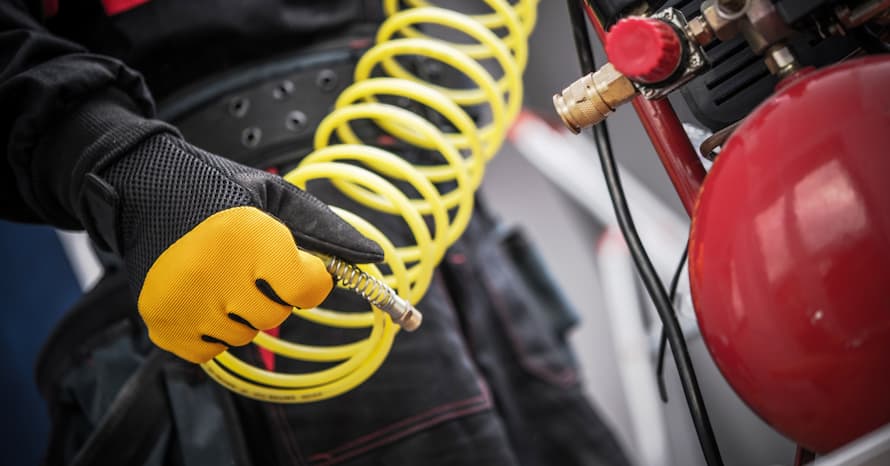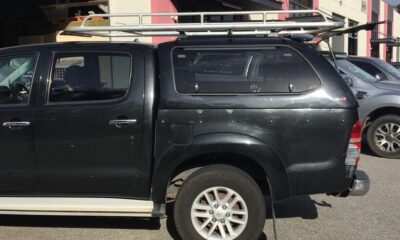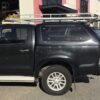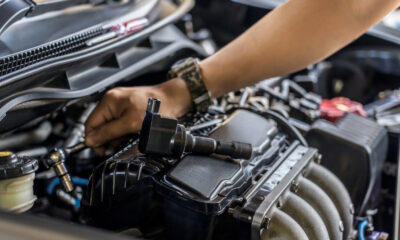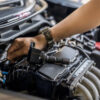Automotive
A Guide to Air Compressors: Ensure a Smooth Ride Quality
Air suspension comes with dozens of advantages over standard suspension setups. By replacing springs with air bellows (or air bags) there’s the ability to adjust vehicle height with a simple flick of a button. Some units even do this for you, providing unmatched comfort, convenience, and handling not seen anywhere else. This is why luxury cars are all fitted with some form of air suspension. Another thing of note is that the setup is easier on the vehicle, with less wear to tyres and suspension, and steering components. And lastly, air suspension offers versatility for specific purposes, such as towing, hauling heavy loads, off-roading and even slamming your car just for the fun of it.
While there are different types of air suspension systems in different vehicles (the concept has been used in trucks and heavy vehicles for decades) the working principle in all of them is similar. Air bags are filled with pressurised air stored in onboard tanks and delivered from a 12 volt air compressor for air suspension through a network of hoses, valves and solenoids. How much air goes to each air bag can be controlled manually with switches in the cabin, or automatically with a separate air management system to adjust the air pressure and vehicle height.
Sizing the whole system is important. A bigger tank can store more air, while a bigger compressor will fill the tank with pressurised and usable air faster. You can spec parts separately or go for carefully configured packaged kits.
Why do Compressors Matter?
Compressors are the components that supply the system with air. They are essentially air pumps that take air in from the surroundings, compress it, and send it to the air tank, where the air is stored until needed to fill the air bags. A quality and reliable compressor is one that is quick and fills the airbags to the specified air pressure, without major issues. These can be anything from inadequate or low airflow, meaning airbags are slow or unable to fill up, to things like overheating, faulty pistons, worn bearings, oil leaks, clogged or dirty filters, and damage from moisture and dirt buildup. Getting an air compressor from a reputable brand means that your air suspension will work as expected, and there is no further damage down the line and to other components due to a compressor that has prematurely failed.
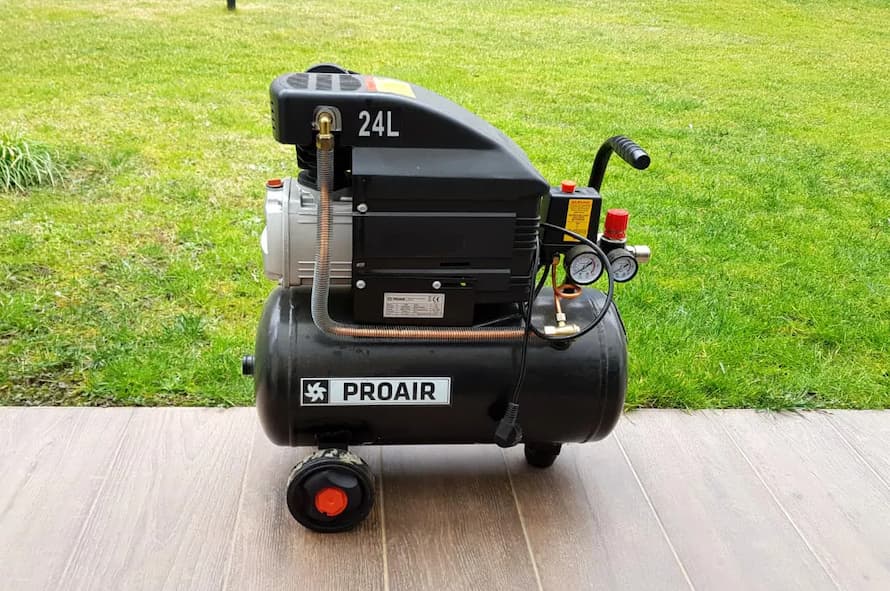
To be able to work, compressors are wired to the vehicle battery, and this leads to two basic types – the more common 12 volt air compressor for air suspension systems usually seen in passenger cars, and bigger 24V compressors found in trucks and buses.
How Many Compressors Do You Need?
While air suspension systems work perfectly with just one compressor, having two has its benefits. If one compressor can’t deliver the required pressure to inflate air bags on time, a secondary unit can step in to do the job. Two compressors working in unison will also endure less wear, as they aren’t working at full capacity.
The same tow units can also be split between front and rear axles and can be calibrated to specific air pressure (such as with more weight at the back or when off-roading). Bear in mind though that you’ll also need an air management system that will balance the work of both.
Choosing an Air Compressor for Your Suspension Setup
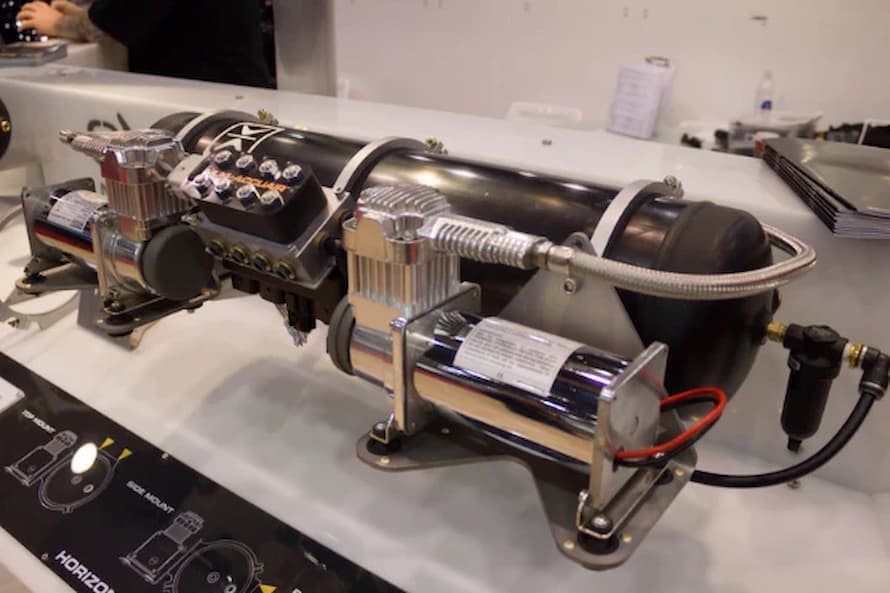
Not all air compressors in air suspension systems are created equal. There are differences in power ratings, airflow, air pressure, and duty cycles.
How Much Power does a Compressor Need?
A compressor with 0.75 hp will have enough in its lungs to push the needed air into the air tank to instantly inflate all four airbags. This ensures a smoother ride if you use the suspension for comfort, or better control when off-roading and more adjustability when towing. Compressors with lower power outputs may be slow to engage and can fail early on.
Airflow and Air Pressure
Airflow is the volume of air a 12 volt air compressor for air suspension pushes into the tank. This can be stated in Litres per Minute (LPM) or Cubic Feet per Minute (CFM). Smaller compressors are rated for at least 1.5 CFM at a constant air pressure of 150 PSI. Larger and more powerful units average between 3 and 4 CFM and will get more air in the airbags and faster. Since the price difference between smaller and larger variants is just a few dollars, going for a more robust compressor offers more convenience and ease of use. It also means that it will last longer as it isn’t pushed as hard.
Duty Cycles
This is the percentage of a 10-minute working period before the compressor needs to stop to cool down. A unit with a 100 percent duty cycle means it can run non-stop. This also means it can supply the specified airflow at the rated pressure whenever needed, and as the road conditions dictate.
By comparison, cheaper compressors, for instance, those with 30 percent duty cycles supply consistent air for 3 minutes only before hibernating for a further 7 minutes. This isn’t appropriate in most driving conditions, especially on poor-quality roads, as it will negatively affect both how the car handles and result in vibrations splintering down your spine as you hit potholes, bumps, or cracks in the road.
Final Word
Reliable and quality units make the best use of newer tech. Today air suspension compressors are compact, powerful, built around quality parts, and are IP certified. Most are oil-free designs (so no leaks), have ported heads for valves and hoses, external washable filters (especially useful when off-road), and can be reconditioned or rebuilt if or when they fail.
Go with a compressor with the right airflow and air pressure for your application, and one that is easy to wire and integrate into your air suspension system. And if you want something true blue, there are a few respected brands that produce compressors, as well as airbags, tanks, management systems, and related parts locally.


